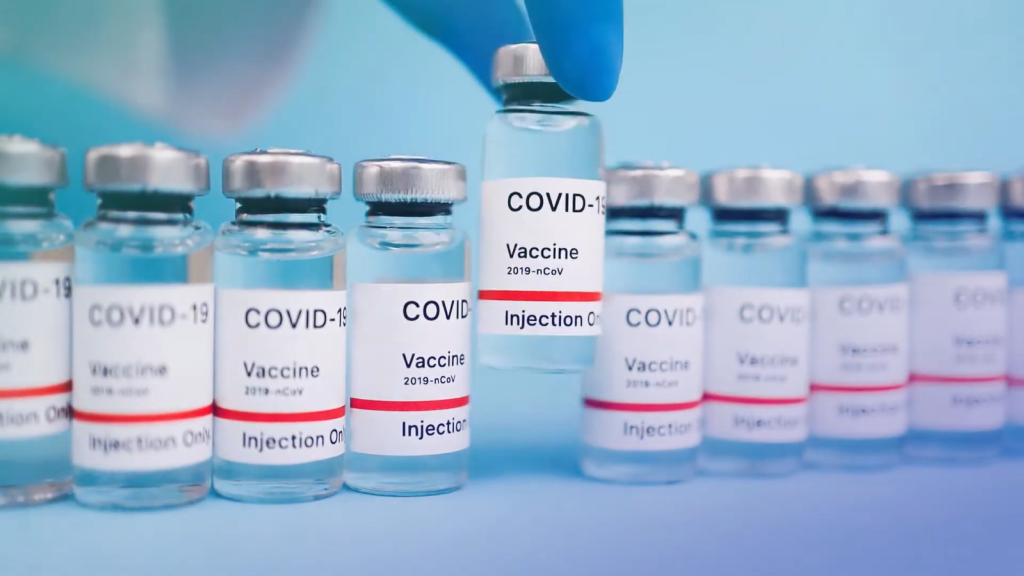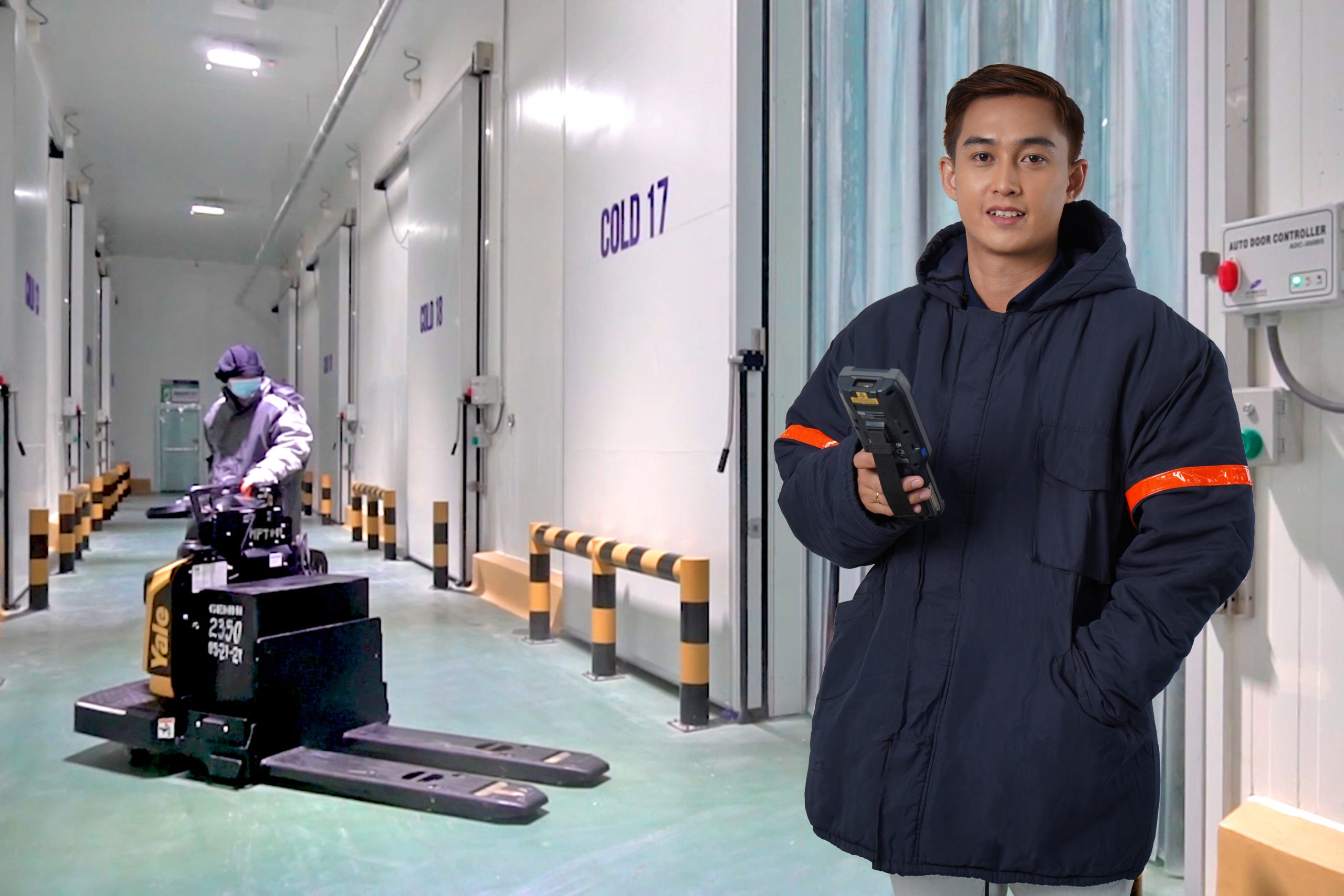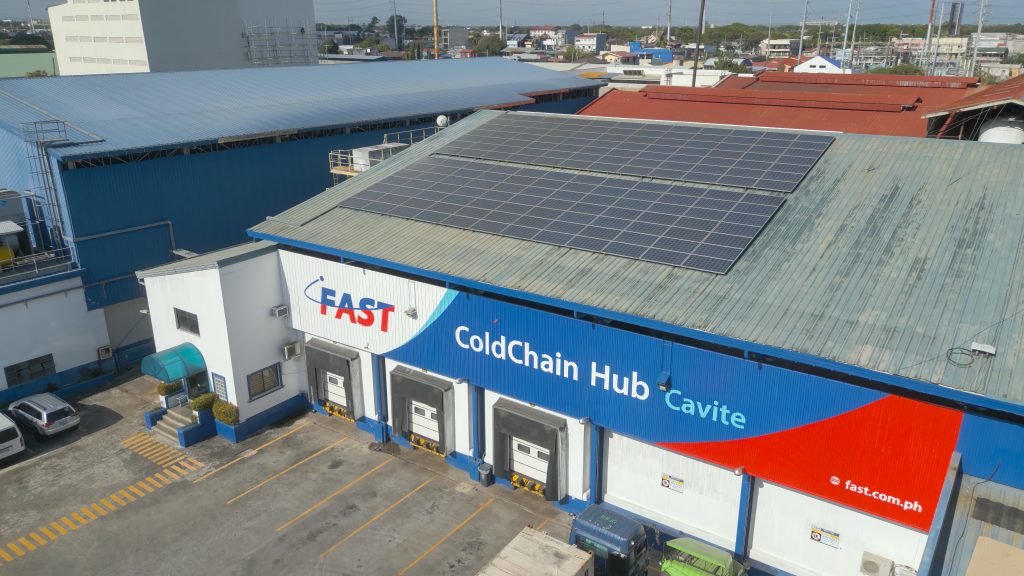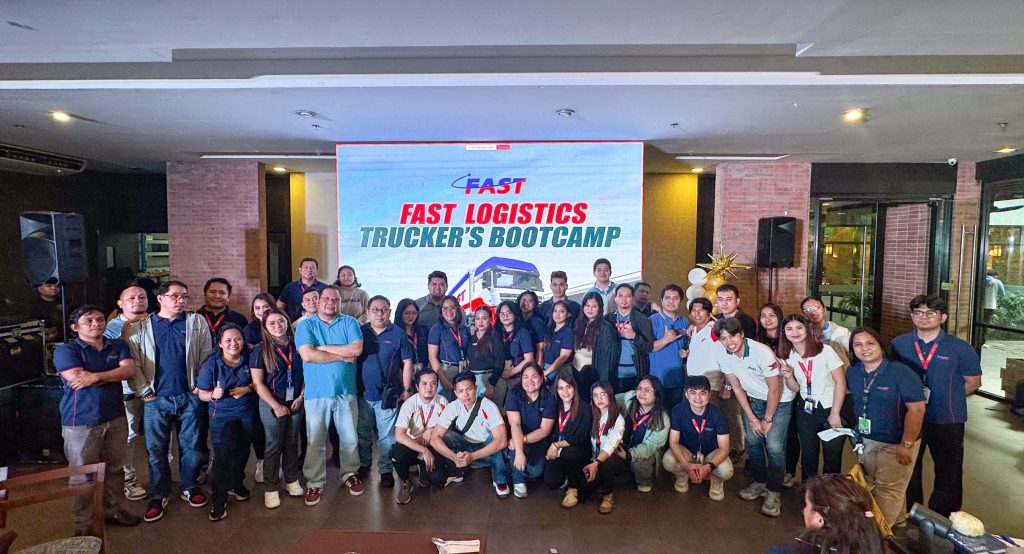
The future of the healthcare supply chain is being shaped by trends that prioritize resilience, agility, sustainability, and patient-centric approaches.
For one, digital disruption revolutionizes supply chain management, enhancing efficiency, transparency, and innovation to set new benchmarks for performance and patient care in the global health system.
By leveraging automation and real-time data analytics, stakeholders can streamline operations, make better-informed decisions, and enhance patient outcomes. Digital technologies also facilitate swift responses to market shifts, further boosting the efficiency and adaptability of the healthcare supply chain.
FAST Logistics Group, the leading end-to-end logistics company in the Philippines, explores how technologies and key trends transform the future of the healthcare supply chain.
What are the Trends in Healthcare Supply Chain
The healthcare supply chain is constantly evolving, driven by advancements in technology, shifts in regulatory requirements, and changes in patient expectations. Understanding the latest trends is crucial for healthcare providers, suppliers, companies, and other stakeholders to stay competitive and deliver optimal patient care. Here are the key trends shaping the healthcare supply chain and their implications for the industry.
Supply Chain Agility
Agility is a crucial characteristic of modern healthcare supply chains. Supply chain agility involves the ability to scale operations up or down based on demand, adjust delivery schedules, and rapidly deploy resources in response to emergencies. Companies must develop flexible and adaptive supply chain models to respond quickly to changing market conditions and patient needs.
This requires a combination of technology, collaboration, and proactive planning. By maintaining flexibility and adaptability, companies can better navigate uncertainties and achieve operational excellence.
Digitization and Automation
The digitization of healthcare supply chains is a transformative trend reshaping the industry. It encompasses the use of electronic systems or digital tools to manage key activities like inventory tracking, order processing, warehouse management, transport management, and delivery scheduling.
By adopting digital tools and automated processes such as the Warehouse Management System and Transport Management System, healthcare companies can streamline their operations and significantly enhance efficiency. This shift to digital platforms also reduces reliance on manual tasks and minimizes the risk of human error. Moreover, these tools and services offer real-time data on inventory levels, expiration dates, deliveries, and other important metrics for clients.
Automation further bolsters efficiency by using technology to handle repetitive tasks, thus accelerating operations. With technology, healthcare professionals can focus on more critical responsibilities.
FAST Logistics Group is at the forefront of innovation in the Philippine logistics and cold chain industry. As one of the leading logistics solutions providers in the country, FAST employs the software solution Meson Warehouse Management System, formerly called Honeywell WMS, to automate every stage of the warehouse process. The Warehouse Management System eliminates manual tasks in warehouses and cold chain infrastructure, thus improving inventory management, accelerating order processing, reducing labor costs, and boosting overall productivity.

Centralized Control Monitoring System
Cold storage facilities are essential in the healthcare sector, especially for storing sensitive products like vaccines and medicines. These facilities are typically equipped with centralized control monitoring systems that provide businesses with real-time temperature tracking, even from remote locations.
In healthcare, maintaining the correct storage conditions for temperature-sensitive products is crucial. The 24/7 visibility offered by cold storage facilities ensures that any deviations from the required conditions are swiftly addressed. This rapid response can prevent spoilage and ensure that vaccines and medicines remain effective and safe until they reach patients.
By integrating such advanced monitoring systems, healthcare providers can significantly enhance the reliability and safety of their supply chains. This not only helps in maintaining the efficacy of critical healthcare products but also builds trust with consumers, knowing that their health and well-being are being safeguarded through cutting-edge technology.
Artificial Intelligence and Machine Learning
Artificial intelligence and machine learning are transforming the healthcare supply chain by enhancing decision-making, optimizing the inventory management system, and predicting demand more accurately.
AI-powered systems can analyze vast amounts of data to identify patterns and trends. This enables companies to make informed decisions, optimize inventory levels, and reduce wastage. For example, AI can be used to predict demand for medical supplies based on historical data and market trends.
Machine learning algorithms can continuously improve supply chain processes by learning from data. This capability allows businesses to adapt to changing conditions and enhance their overall efficiency.
Aside from the Warehouse Management System, FAST utilizes the Transport Management System to streamline logistics and ensure efficient healthcare delivery. Developed by the company’s IT experts, this comprehensive suite of software solutions uses advanced AI algorithms to optimize shipment allocation, route planning, and delivery schedules. It also provides supply chain managers with real-time updates on traffic conditions and delivery time windows, so customers can ensure smooth operations and cost savings.
Blockchain Technology
Blockchain technology is gaining traction in healthcare supply chains for its ability to provide secure, transparent, and immutable record-keeping. This technology improves traceability and trust within the supply chain.
Blockchain involves the use of a decentralized ledger to record transactions. Each transaction is verified and added to the ledger, creating a transparent and tamper-proof record. With this technology, there is traceability and accountability throughout the supply chain.
In healthcare, blockchain can be used to track the movement of medical supplies, verify the authenticity of products, and ensure compliance with regulatory requirements. It also enhances data security by providing a secure platform for storing sensitive information.
Enhanced Supply Chain Visibility
Increased visibility across the supply chain is becoming a crucial factor in ensuring efficient operations. Advanced tracking technologies and data analytics are used to achieve real-time visibility and transparency across healthcare supply chains.
With enhanced visibility, companies can monitor the movement of raw materials and finished goods throughout the supply chain, from manufacturer to distribution channels and customers. This real-time tracking allows for better decision-making and helps identify potential issues before they escalate. It also ensures that product integrity and quality are maintained from warehousing to transportation and last-mile delivery.
Data analytics also plays a pivotal role in supply chain visibility. By analyzing data from various sources, companies can gain valuable insights into supply chain performance, identify trends, and make informed decisions to optimize operations and cut operational costs.
Under the brand “Fresh by FAST,” FAST delivers integrated, intelligent, and flexible ColdChain solutions to cater to our clients’ diverse needs. Our cold storage facilities offer real-time visibility 24/7. FAST ColdChain Hubs are equipped with advanced temperature and humidity sensors, accessible through mobile and web platforms. This enables companies to effortlessly monitor their goods remotely.
Patient-Centric Supply Chain
A shift towards patient-centric supply chains is also emerging in the healthcare industry. This approach focuses on tailoring supply chain operations to meet the specific needs of patients, including direct-to-patient delivery models.
By placing the patient at the center of the supply chain, healthcare companies can ensure timely and accurate delivery of medical supplies and treatments. Direct-to-patient delivery models, for example, enable patients to receive their medications and medical devices directly at their doorstep.
Patient-centric supply chains also involve personalized treatment plans, which require specialized handling and healthcare delivery. This trend highlights the importance of flexibility and adaptability in supply chain operations.
Personalized Medicine
The rise of personalized medicine is driving significant changes in healthcare supply chains. This approach involves tailoring treatments and therapies to individual patients, often requiring specialized handling and delivery.
Personalized medicine supply chains must be flexible and adaptive to accommodate the unique needs of each patient. This includes managing small-batch production, ensuring precise delivery schedules, and maintaining high standards of quality control.
To support personalized medicine, healthcare organizations must invest in advanced logistics solutions and technologies. This includes temperature-controlled storage, real-time tracking, and robust quality assurance processes. Supply chain professionals should also be trained in meticulous processes to ensure the safety and efficacy of products that are being stored and transported.
Resilience and Risk Management
The COVID-19 pandemic has highlighted the critical importance of resilience and risk management in the healthcare supply chain. It means that companies should be able to endure and recover from disruptions.
Strategies for resilience include diversifying suppliers, maintaining buffer stock, investing in adaptable logistics solutions, and collaborating with logistics providers with the expertise and capabilities to handle supply chain disruptions. By anticipating risks and potential issues, manufacturers and distributors can ensure operational continuity and business resiliency.
At FAST, we empower our clients with flexible solutions based on their needs. We offer the option to store anywhere from one pallet to 10,000 pallets, for durations ranging from a day to a year. Clients are charged daily per pallet, providing a seamless and cost-efficient solution perfectly tailored to their cold storage needs and business requirements.
Effective risk management also involves identifying and mitigating potential risks. This process includes conducting thorough risk assessments, developing comprehensive contingency plans, and implementing robust monitoring systems to detect early warning signs of supply chain disruption.

Committed to innovation and sustainability, FAST has invested in renewable energy sources. This initiative not only reduces greenhouse gas emissions from our warehouse operations but also significantly lowers our carbon footprint.
Focus on Sustainability
Sustainability is becoming a key focus in healthcare supply chains. Companies are increasingly adopting eco-friendly practices to reduce the environmental impact of their operations.
Sustainable supply chain practices include optimizing transportation routes to reduce carbon emissions, using eco-friendly packaging materials, and adopting energy-efficient technologies. These initiatives not only benefit the environment but also contribute to cost savings.
In addition to environmental sustainability, organizations are also focusing on social sustainability. This involves ensuring ethical practices in the supply chain, such as fair labor conditions, responsible sourcing of raw materials, and minimizing waste.
Collaborative Networks
Collaboration is a powerful tool for improving supply chain efficiency and coordination. Healthcare providers, suppliers, and logistics partners are increasingly forming collaborative networks to enhance their operations.
Collaborative networks involve sharing information, resources, and expertise to achieve common goals. For example, healthcare providers and suppliers can collaborate to improve demand planning, reduce costs, and ensure timely delivery of medical devices and critical supplies.
Technology plays a vital role in facilitating collaboration. Digital platforms enable seamless communication and information sharing among network participants, leading to improved coordination and efficiency.
Regulatory Compliance
Regulatory compliance remains a critical concern in healthcare supply chains. Failure to comply with regulations can result in severe consequences, including legal penalties and reputational damage. Healthcare companies should therefore stay updated with regulatory changes and implement necessary measures to ensure compliance.
In addition, organizations should adhere to evolving regulatory requirements and standards including those related to data security and patient privacy. This includes maintaining accurate records, implementing robust data protection measures, and conducting regular audits.
Intelligent ColdChain Logistics Solutions
Effective cold chain management is crucial for the safe transportation and storage of temperature-sensitive products like medicines and vaccines. It ensures product integrity and quality by maintaining required temperatures using robust cold storage facilities and specialized equipment. This includes refrigerated trucks, temperature-controlled containers, monitoring devices, inventory management systems, and other innovation.
Intelligent cold storage solutions go beyond simply preserving products; instead, these help improve supply chain management, enhance energy efficiency, and reduce waste through innovation and digital systems. It also involves real-time monitoring and centralized control systems. These logistics solutions benefit not just the pharmaceutical industry but also public health.
Healthcare companies can choose the ideal ColdChain partner in the Philippines by understanding the quality and capabilities of local cold storage facilities.
FAST is the one-stop solution for all cold storage requirements as it offers multiple temperature zones — frozen, chilled, ambient, and dry. Our comprehensive services encompass blast freezing, meat processing, and picking and packing for the most discerning customers in pharmaceuticals and the food sector. Watch the video below to learn more.
Technology and Intelligent ColdChain Solutions for Healthcare Supply Chain
The complexity of healthcare supply chains is undeniable, with numerous vaccine manufacturers, distributors, and ColdChain solutions providers creating a fragmented landscape. This often leads to inefficiencies and coordination challenges. Many organizations still use manual processes, resulting in delays, errors, and higher costs.
However, there’s a growing trend towards technology adoption to streamline operations and improve efficiency. Forward-thinking healthcare organizations are using technology to enhance agility, build resilience, and meet increasing customer demands.
For healthcare professionals, supply chain managers, and technologists, staying informed about these trends is crucial. Adapting to technological shifts can future-proof supply chains and achieve operational excellence. Trusted logistics providers leverage digital technologies and offer reliable, integrated, and flexible cold chain logistics solutions, ensuring product quality and safety while meeting the demand for pharmaceuticals and healthcare goods.
FAST Logistics Group, a leading provider of end-to-end logistics solutions in the Philippines, is at the forefront of the transformation of intelligent ColdChain solutions in the Philippines. Its vast supply chain capabilities and wide network enable it to deliver seamless and efficient services to clients across various industries. Our solutions include temperature-controlled cold storage, real-time monitoring, and advanced transportation systems.
By leveraging these innovative solutions, healthcare companies in the Philippines can ensure the safe and effective delivery of temperature-sensitive products such as vaccines and biologics. This not only improves patient outcomes but also strengthens the country’s overall healthcare infrastructure. After all, adopting digital solutions is essential not only for a competitive edge but also for survival and growth.
If you’re looking to enhance your healthcare supply chain capabilities, explore FAST’s innovative solutions. Connect with our Solutions Experts or visit http://linktr.ee/fastlogisticsph to learn more about our ColdChain capabilities.
Categories
-

FAST Ahead
Includes case studies and testimonials of our partners as well as other featurettes from industry experts
-

FAST Hacks
We simplify logistics terms and provide practical tips and solutions for the DIY in you
-

FAST Highlights
Know more about our history, various brands, achievements, and news updates
-

FAST Moments
Get to know the people of FAST, our employee programs, as well as our various ways of giving back to the community
-

FAST Solutions
Learn more about the various logistics solutions that we cater to and offer our clients, as well as tech innovations, and service facilities



